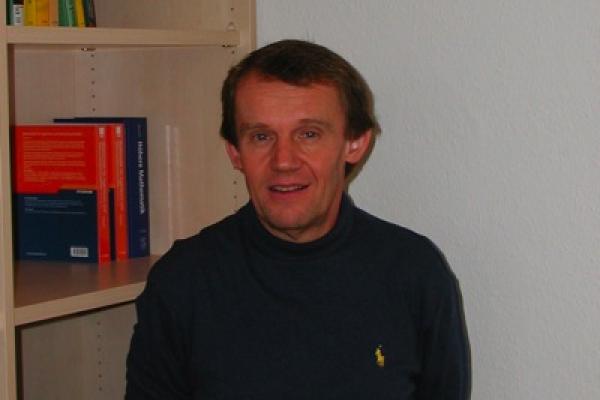
Title: On Compact Support Solutions to Parabolic Problems with the $p$-Laplacian for $p > 2$ and Their "Counterparts" for $p < 2$
Speaker: Peter Takac (University Rostock, Germany)
Abstract: The validity of the weak and strong comparison principles for degenerate parabolic partial differential equations with the $p$-Laplace operator $\Delta_p(u) = \mathrm{div} (|\nabla u|^{p-2} \nabla u)$ will be discussed for $p>2$ (the "degenerate" case) and for $1 < p < 2$ (the "singular" case). This problem is reduced to the comparison of the trivial solution ($\equiv 0$, by hypothesis) with a nontrivial nonnegative solution $u(x,t)$. The problem is closely related also to the question of uniqueness of a nonnegative solution via the weak comparison principle. In this presentation, for $p > 2$ realistic counterexamples to the uniqueness of a nonnegative solution, the weak comparison principle, and the strong maximum principle are constructed with a ${\it nonsmooth}$ reaction function that satisfies neither a Lipschitz nor an Osgood standard "uniqueness" condition. Nonnegative ${\it multi-bump}$ solutions with spatially disconnected compact supports and zero initial data are constructed between sub- and supersolutions that have supports of the same type. For $1 < p < 2$ we will show that a nonnegative solution $u(x,t)$ to the parabolic Cauchy problem in $RR^N\times (0,T)$ with nonnegative sources and nontrivial initial values $u(x,0)\geq 0$ becomes positive immediately for any $t\in (0,T_0)\subset (0,T)$, i.e., $u(x,t) > 0$ for every $x\in RR^N$. Finally, we adapt this result also to the Dirichlet problem in a bounded spatial domain $\Omega\subset RR^N$ with a completely different proof based on well-known results.
Download abstract [pdf]
